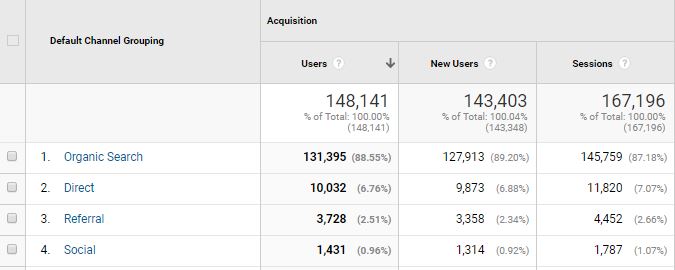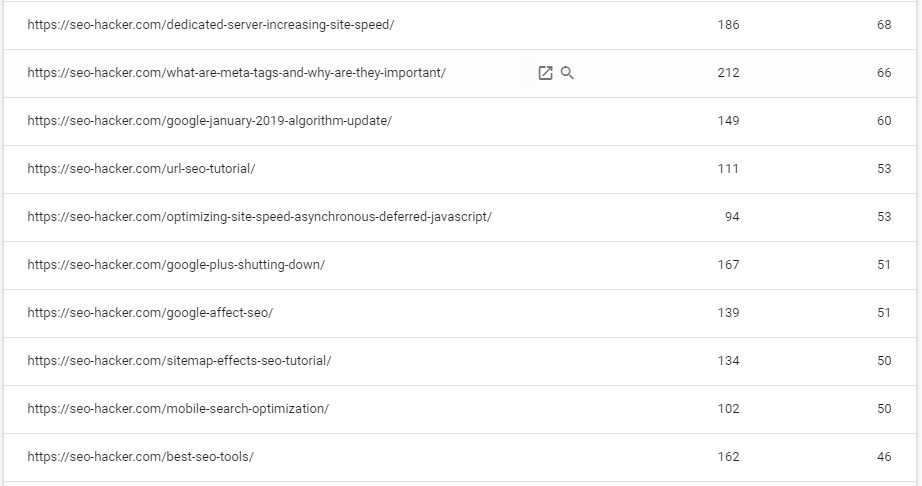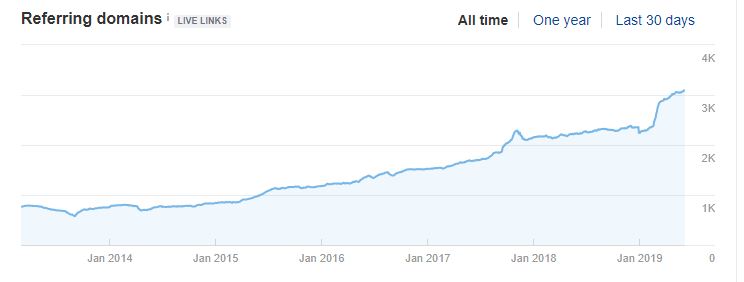8 Reasons Why Your Link Building Campaign is Not Working
Link building continues to be one of the most important SEO strategies. There is still a great correlation between the number of links and high organic rankings. This is why any SEO strategy could not be complete without link building.
Search engines, especially Google, have made link building a lot more difficult. This makes link building campaigns a lot more complicated. It requires careful planning and takes a lot of time and patience to execute.
It could quite be frustrating to launch a link building campaign for months and see no increase in your website’s traffic or rankings and one of these might be the reason why your link building efforts are not working.
Your Links are from Irrelevant Websites
Just like for content, relevance is important for any link building campaign. If your website’s niche is business and finance, it wouldn’t make sense for search engines if you get links from a medical website.
Link relevance is just as important as authority. Both of these are strong link-related ranking factors.
If you find irrelevant links on your Search Console Link Report, don’t disavow it just yet! If Google thinks a link is irrelevant, they are smart enough to devalue it. So unless you receive a manual action, don’t disavow immediately.
If you have guest blogging on the list of your strategies, plan it out and don’t just send emails to random webmasters. Create a list of websites in your niche that are not direct competitors where you could contribute articles that will provide value.
You’re Not Getting Referral Traffic
If you’re building links for the sake of just getting a backlink, then you’re stuck in the old ways and you need to catch up. Link building today goes hand in hand with content marketing. You create great content to get people to go to your website and read your content.
Before you build a link on a website, you need to ask yourself: “Would people click on my link?”. The more likely a person clicks on your link, the more a link is valued regardless if it’s NoFollow or DoFollow.
If you’re doing a link building campaign, check your Google Analytics account and go to your Acquisition report. Monitor and identify the websites you are getting clicks from to better plan your strategy.
Imbalance Between Links Built and Links Earned
Do you want to know the best way to build links? Earn them. The reality is, Google hates link building because it’s too manipulative that is why they have taken steps to make it more difficult. If all of your links are built and none of them are organic, then you have a bad link profile.
While a lot of common link building strategies still work, to Google, nothing beats more than acquiring links because of great content. That is why the most successful link building campaigns involve great blogs.
There is no doubt that to Google, content is king. Building links to your website is good but you need to have a balance in between. Create good content that people would love to read and link to and links will come without forcing it.
Not Enough Referring Domains
A backlink profile with thousands of referring pages might look great but what matters to Google more is the number of referring domains. Even if you get 10 links because you contributed 10 guest articles in a website, it will only count as one referring domain.
This was once abused before that is why link directories and link farms became a business in the 2000s. You place a link in a website and that website scatters your link in different pages inside giving you hundreds of referring pages from just website.
You could use Google Search Console’s link report to check if you have a good ratio between incoming links and linking website/referring domains.
If you’re building links, make sure you don’t get links from the same websites just because it’s easier. Focus on building relationships, connect with different webmasters, and refrain from buying links from link farms or PBNs because they just don’t work anymore!
Slow Link Velocity
Acquiring a link in a day is one thing, acquiring more links over time is another. Link velocity is about how slow or fast your website is acquiring backlinks. If you’re losing more links than your gaining, it might be a sign that people are losing trust on your website. At the same time, if you’re gaining links too fast, it might be a sign to Google that you’re doing something fishy.
You could use Ahrefs to check how the growth of your links looks like. Here’s what a great link velocity look like:
Make sure that you build links as natural as possible. You don’t have to build a thousand links in a month just to relax the next month. Never sacrifice quality for quantity. It is better for you to build 5 to 10 high-quality links in a month than produce a thousand random links.
Lost Backlinks
Losing backlinks can be caused by different things. It might be the website closed for good, the page was deleted, or maybe the webmaster decided to remove your links from a post. If you want to check for lost backlinks, you could use Ahrefs.
You could either check for Lost Backlinks or Lost Referring Pages. I usually prefer checking the Lost Backlinks report because it specifically says what page I was linked before.
A loss is a loss but you could still try to get them back. If you lost a backlink from a blog post that linked to you as a source, you could reach out to the webmaster and ask why your link was removed. It might be because your page was outdated or it returns a 404 Error. This could be an opportunity for you to update your content or fix errors and ask webmasters to link back to you again.
Competitors Have Better Links
If you’ve been building links for months and still haven’t overthrown your competitor who is at the top spot, then most likely they have better, more high-quality links.
Take note of “high-quality links”. Even if you check Ahrefs or other backlinks checker tools out there and see that you have more links than your competitor; quality will always have more value than quantity.
Do research on what your competition is doing. Competitive link building is one of the best ways to build links. Find out who is linking to your competitor and try to get them to link to you.
Other SEO Factors are Not Optimized
Link building is great but it is not everything. Google uses more than 200 ranking factors and links are just one of them. No website gets to be successful by relying on links alone so don’t give yourself too much headache.
There is always room for optimization. Aside from acquiring links on a regular basis, you should also focus on regularly producing high-quality content, making your website mobile-friendly, improving site speed, and many more.
Always remember that SEO should be holistic. Try to find a balance in everything. While you can’t do all ranking factors perfectly, try to find what works for you.
Key Takeaway
Link building has evolved and it continues to evolve. In my opinion, links will continue to be relevant. It might not be as powerful as before but to rank high organically will always involve high-quality links.
A great link building campaign is the one that follows Google’s guidelines and it goes hand in hand with other SEO strategies. If you see that your link building campaign does not work, learn how to step back, investigate, and restrategize.




